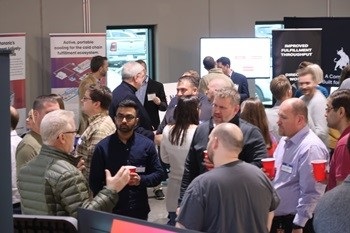<p>By: Doug Baker, Vice President, Industry Relations, FMI<br />
<img src=”https://www.fmi.org/images/default-source/blog-images/marketechnics-image-2.tmb-large-350-.jpg?sfvrsn=b0c31088_1″ data-displaymode=”Thumbnail” alt=”Marketechnics image” title=”Marketechnics image 2″ style=”float: right; margin: 10px;” /></p>
<p>The food retail industry has been forced to focus on technology-driven innovation by the changing shopper expectations, new digital competition, and the explosive growth of consumer digital technology. What executives often miss, though, is the need to look past specific technologies to understand that they now operate in a new world and need a digital-first business culture.</p>
<p>Our ‘technology-everything’ world has been the incubator for digital native consumers and companies. Just as children today can nimbly navigate their parent’s iPhones, digital-first companies maneuver faster and keep pace with new technologies to create disruptive business models and capabilities. </p>
<p>Digital natives differ from more traditional organizations in three key areas:</p>
<h5>1. Focus on Mindset</h5>
<p>Some traditional retailers inevitably hire people with only industry experience into their executive ranks. Digital natives do not focus strictly on experience –how can they when they are creating something new? Instead, they focus on mindset, willingness to change, and a desire to test the norm and do things differently.</p>
<h5>2. Try and Fail Fast</h5>
<p>Setting up test environments and failing fast is almost a religion for digital native organizations. They understand the only way to learn is to try new things, and the faster that can be done the faster they can create the next big thing. This test and fail-fast philosophy is antithetical to traditional business.</p>
<h5>3. Innovation Leaders Throughout</h5>
<p>Traditional companies think of innovation as a task and assign it to an individual thinking this will address and accelerate change. But often the opposite happens, creating bottlenecks and missed opportunities. Digital native companies expect and empower everyone in the organization to think and drive innovation. </p>
<p>How can traditional retailers adapt to this new operating environment? <a href=”https://www.fmi.org/industry-topics/technology/marketechnics”>FMI Marketechnics</a> powered by CART, provides the food retail industry with a new <em>operating</em> <em>system</em> for their organizations. The program, personalized and relevant for each host, provides insights, understanding, and discovery of new innovation as part of an ongoing program.</p>
<p>I encourage a conversation about your organization’s objectives and if an FMI Marketechnics program is right for your campus.</p>
<p><a href=”https://www.fmi.org/industry-topics/technology/marketechnics” class=”button”>Connect With Us via This Online Form</a> </p>
Jul 13, 2022
By: Doug Baker, Vice President, Industry Relations, FMI
The food retail industry has been forced to focus on technology-driven innovation by the changing shopper expectations, new digital competition, and the explosive growth of consumer digital technology. What executives often miss, though, is the need to look past specific technologies to understand that they now operate in a new world and need a digital-first business culture.
Our ‘technology-everything’ world has been the incubator for digital native consumers and companies. Just as children today can nimbly navigate their parent’s iPhones, digital-first companies maneuver faster and keep pace with new technologies to create disruptive business models and capabilities.
Digital natives differ from more traditional organizations in three key areas:
1. Focus on Mindset
Some traditional retailers inevitably hire people with only industry experience into their executive ranks. Digital natives do not focus strictly on experience -how can they when they are creating something new? Instead, they focus on mindset, willingness to change, and a desire to test the norm and do things differently.
2. Try and Fail Fast
Setting up test environments and failing fast is almost a religion for digital native organizations. They understand the only way to learn is to try new things, and the faster that can be done the faster they can create the next big thing. This test and fail-fast philosophy is antithetical to traditional business.
3. Innovation Leaders Throughout
Traditional companies think of innovation as a task and assign it to an individual thinking this will address and accelerate change. But often the opposite happens, creating bottlenecks and missed opportunities. Digital native companies expect and empower everyone in the organization to think and drive innovation.
How can traditional retailers adapt to this new operating environment? FMI Marketechnics powered by CART, provides the food retail industry with a new operating system for their organizations. The program, personalized and relevant for each host, provides insights, understanding, and discovery of new innovation as part of an ongoing program.
I encourage a conversation about your organization’s objectives and if an FMI Marketechnics program is right for your campus.




